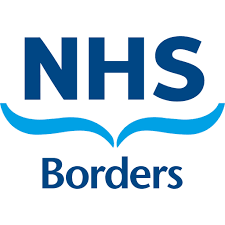Lymphogranuloma verereum (LGV) and proctitis

For a comprehensive guide to the assessment and management of proctitis and sexually transmitted enteric infection in MSM see Chapter 3 of the UK national guideline on the sexual healthcare of MSM, filed along with this chapter of the Borders protocol. The full guideline is at:
http://journals.sagepub.com/doi/abs/10.1177/0956462417746897
LGV
- Caused by invasive serovars of Chlamydia trachomatis – L1,L2 or L3
- LGV is now hyperendemic among MSM in the UK following outbreaks in Europe from 2003.
- The proportion of cases which were asymptomatic increased from 6% in 2006 to 22% in 2012
- Many are also HIV positive (78% of all LGV cases diagnosed 2004-2011)
- Many have concomitant STIs, including Hepatitis C in 14% of cases. There is an association with “rough” sex, fisting, use of sex toys and sex parties.
- Most MSM patients present with proctitis rather than “classical” LGV in heterosexuals causing inguinal lymphadenopathy.
Other sexually acquired causes of proctitis
- Neisseria gonorrhoea
- Chlamydia trachomatis serovars A-K
- Treponema pallidum
- Herpes Simplex Virus
- Possibly Mycoplasma genitalium
Clinical features
Symptoms
- Anal discharge
- Bleeding PR
- Constipation
- Sensation of rectal fullness
- Tenesmus
- + diarrhoea and abdominal pain if colon involved
Signs
- Mucopurulent anal discharge
- Anorectal Bleeding
- + lower abdominal tenderness if colon involved
Proctoscopic findings (proctoscopy recommended if tolerated by patient)
- Mucopus in lumen of rectum
- Mucosal oedema
- Contact bleeding
- +/- ulceration
- +/- inflammatory mass
Investigation of proctitis
Gram stain of mucopus obtained via proctiscopy – poor correlation between PMNL alone and STI
If intracellular GNDC seen – presumptive diagnosis rectal gonorrhea
Swab of mucopus for GC NAAT and GC culture
Swab of rectal wall for CT NAAT
If LGV is suspected write “If Chlamydia positive - LGV specific PCR” and remember to specify which sample to be tested if more than one eg MSM
LGV specific tests can take up to 10 days – further delays will be avoided by requesting PCR on initial sample form.
Swab of any ulcers in red-topped viral transport medium for HSV and T.pallidum PCR
Syphilis serology
Urine and pharyngeal NAAT for GC/CT
If diarrhoea
- stool x3 for ova, cysts and parasites (OCP)
- stool for C.difficile toxin if recent antibiotics
- stool for culture of Shigella spp, Salmonella spp and Campylobacter spp.
If inguinal lymphadenopathy - send a first pass urine/urethral NAAT for chlamydia and ask “if Chlamydia positive - LGV specific PCR”.
In MSM – HIV and Hepatitis C testing should be carried out (and repeated after appropriate window periods)
Management of proctitis in clinic
If GNDC seen and presumptive diagnosis rectal gonorrhoea – see section 2.
If non-LGV chlamydial infection – see section 3.
The following are suggested with a review at 1-2 weeks
Moderate/severe proctitis:
Ceftriaxone 1g im stat
GC most likely cause (even if microscopy negative - rectal smears poor sensitivity)
Plus
Doxycycline 100mg oral twice daily for 1 week
If LGV serovars positive extend to 3 week course
Alternative if allergic, Azithromycin 1g + 500mg OD for 2 days
And consider
Aciclovir 400mg TDS 5 Days
If potential HSV lesions present
Management of confirmed LGV
Doxycycline 100mg oral twice daily for 3 weeks
Alternative
Erythromycin 500mg oral four times a day for 21 days
OR
Azithromycin 1g weekly for 3 weeks
HIV positive patients – same regimens as above. There are few significant drug-drug interactions (DDIs) between doxycycline and commonly used antiretrovirals. If in doubt, check with doctor/pharmacist.
Partner notification
Look back 4 weeks if symptomatic (3 months if asymptomatic).
Treatment of contacts of LGV
If >14 days since contact with index, and asymptomatic - offer testing prior to treatment.
If treating presumptively give doxycycline 100mg bd for 3 weeks.
Patient information
- LGV is an invasive bacterial STI that can be cured with antibiotics.
- Untreated infection can have serious and permanent adverse effects on the rectum/bowel.
- Symptoms should resolve within 1-2 weeks of starting antibiotic therapy
- Importance of avoidance of sexual intercourse until they and their partners have completed treatment and follow up.
Follow up
- Test of cure is not required for non-LGV Chlamydial proctitis if symptoms resolve
- Test of cure is not required for LGV proctitis if symptoms resolve – unless treatment course not completed
- Test of cure for Gonococcal proctitis would be advised at 3 weeks – see section C
Differential diagnosis of proctocolitis/enteritis
- E. histolytica
- Shigella spp
- Campylobacter spp.
- Cryptosporidium
Inflammatory bowel disease Coeliac disease
Medication side-effects Trauma
